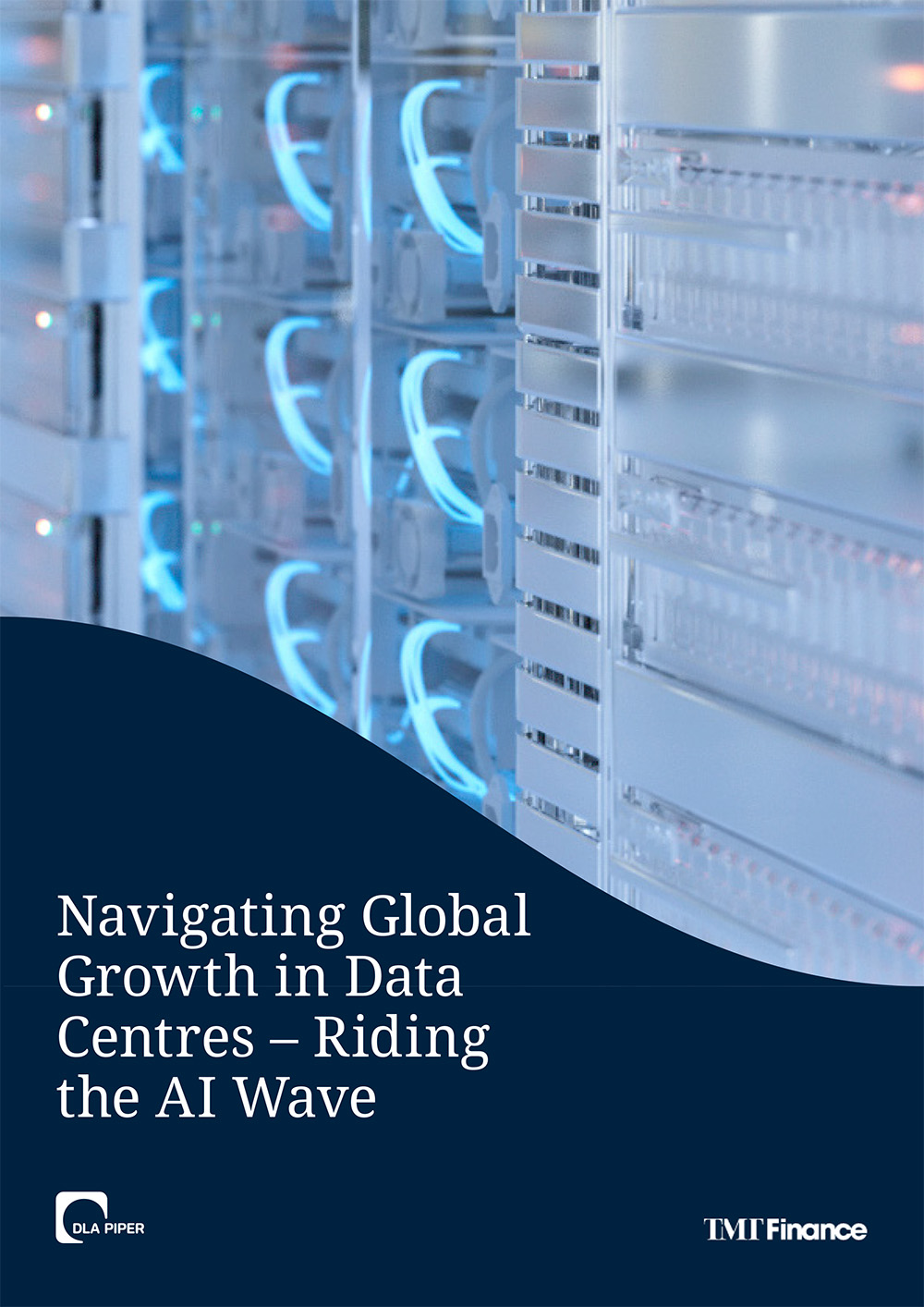
26 November 2024 • 3 minute read
Global data centre market confident about AI fuelled growth, despite power supply concerns
Global data centre investors and operators are confident about the sector’s future, with 70% of respondents predicting increased investment in data centres in the next two years, new research by DLA Piper has found. Almost all respondents also foresee AI driving demand for data centres, primarily through machine learning and natural language processing.
Those surveyed have also expressed significant concern over the stability of power supplies for the rapidly-growing number of data centre sites worldwide. A total of 98% of investors and operators told the global law firm that they had concerns about the availability and reliability of power supplies when they made decisions about data centre projects, with half of respondents identifying the issue as a principal barrier to investment.
The global data centre market is expected to be valued at around USD 300bn in 2024, according to analysis by TMT Finance, which carried out the research for DLA Piper. With a projected average compound annual growth rate (CAGR) of approximately 10% over the next five years, the market is expected to be valued at USD 483.15bn by 2029.
DLA Piper highlights that utility companies in the US are being flooded with power delivery requests for sites earmarked for data centres that they will not be able to satisfy until well into the 2030s. In response, utility companies are now requiring large upfront non-refundable payments from investors in land and a committed off-taker of that power. The report also reveals utility companies are requiring developers to pay upfront for all the critical infrastructure, such as substations, needed to bring power to the site.
Investors are also expecting sustainability concerns around data centre energy and water usage to continue growing, with 70% of respondents saying they expected scrutiny and due diligence to increase over the next two years. The EU has already introduced a range of measures which place significant obligations on data centre operators to report and take measures to reduce their emissions. These include the European Climate Law and its Energy Efficiency Directive.
Anthony Day, Partner at DLA Piper said: “Data centre capacity is key to the AI revolution and the wider global economy. To satisfy increasing demands for processing power, not only will significant investment be required from across the industry, but also a clear framework established to encourage coordination between policymakers, investors and power providers, that ensures the heightened future power demands can be met. It should be possible to fulfil industry needs and realise AI's potential, however the need for sufficient and reliable power supplies to be in place must be a global priority.”
Alanna Hasek, Partner at DLA Piper said: “The energy transition has led to an unprecedented increase in demand for grid access with data centres competing with the likes of renewable energy projects and electric car charging stations. Faced with demands from governments to prioritise the transition, already overstretched utility companies in the US are increasingly requiring data centre investors to fund their own grid connections. Investors and developers should be prepared to see this trend begin to be replicated across other markets.”
